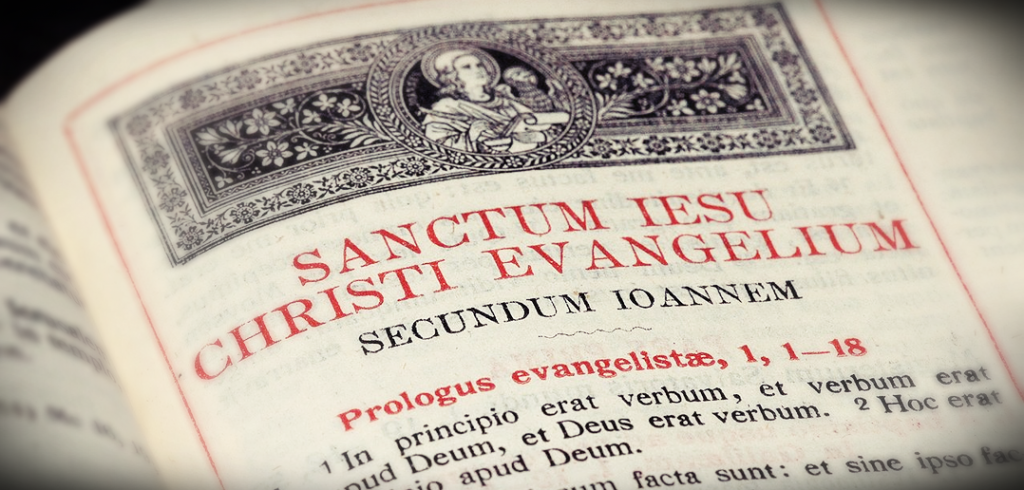Reading through the stack I came across a good line. An author was raising questions about the Pope's reorganization of the Vatican departments to give pride of place to evangelization rather than to doctrine. Now I might imagine that some would applaud such a move and insist that this is how it should have been always. The Lord commands us to go and make disciples and baptize and such. That is the great commission, right? We ought to give pride of place to the work of discipling or evangelizing or converting or witnessing or whatever other word you would like to use.
Or should this come first?
Evangelism and outreach have to proceed from something and have to offer something to direct the hearer to or this is nothing but publicity. Strangely, some speak of evangelism much the way we count friends on Facebook. We mark our Bibles with chits to note how many conversions we have maneuvered so far as if conversion was a mere matter of packaging, argumentation, savvy marketing, smooth sales pitch, and the art of closing the deal. But evangelism is the outgrowth of doctrine, of what we believe and teach. Confessing flows from belief and teaching. And all of this flows from the Word of God. Faith does come by hearing the Word of God. I read it somewhere. And the Word of God is what God has revealed to be known and believed and confessed about His Son.
The reason churches are weak and Christians go where the wind blows and ease their itching ears with whatever new heresy or shallow psycho babble comes along is not because they are fired up to share Jesus but because they have no roots in His Word, no connection to a place where that Word is faithfully proclaimed, no baptismal creed to mark the entrance into orthodox faith, and no life nourished and fed at the Table of the Lord. It is because our doctrine is weak that the churches are weak and it is because the doctrine is clouded and foggy that they cannot find a compelling reason to belong.
If Pope Francis is making doctrine secondary to evangelization, he is following a terribly sad Protestant trend -- and one not unknown among Lutherans either! The Church lives by the Word and by the Sacraments and this is not only the life within but the means to offer hope to the world. If we muddy the waters of what is believed and taught, we will offer the world little more than our enthusiasm (which may wax and wane as feelings surely do). But if we stand upon the eternal Word and proclaim the eternal Gospel rooted in time and history and in the fact of God enfleshed, suffering for our sin, dying for our redemption, and rising to offer us life stronger than death, then we have something to say to a world that makes its peace with death, that calls sin good, and that rejects the idea of truth. But if we have no doctrine to confess, we have nothing to offer those not yet of the Kingdom. And our evangelism will surely fail or the church will become a social club in which we surround ourselves with parrots to say back to us what we have said to them (instead of speaking back to God what He has said to us).
I do not worry about the lack of evangelism interest nearly as much as I worry about a Church unhinged from the body of doctrine that defines the faith and from the sacred deposit once delivered to the saints but not largely abandoned among the moderns. I believe that when the faith is deeply rooted in the Word of God, vocation formed from baptismal water, life centered upon absolution, and the Christian fed and nourished upon the flesh and blood of Christ, evangelism will flow and witness will be given and the Church will make inroads in the world according to God's own saving will and purpose. It is, after all, much easier to raise up witnesses from those whose doctrine is faithful to the Scriptures and in accord with the catholic tradition than it is to fill the vacuum of a people excited about something but not sure what that is.
Pure doctrine is not an enemy of mission but its engine. Truth does not get in the way of witness but is that witness. Creed and confession are not sectarian but the most catholic of all. And where this is rooted and founded upon the Scriptures, where it rejoices in the testimony of the saints from age to age, and where it is lived out from font to table, evangelization will flow naturally. But you cannot turn that equation around with any success and you cannot pit Matthew 28:18-20 against 2 Timothy 1:14.

No comments:
Post a Comment